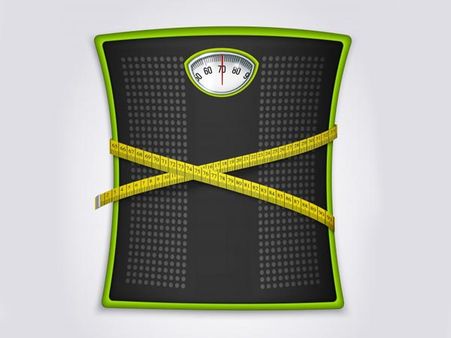Just In
- 1 hr ago

- 1 hr ago

- 6 hrs ago

- 11 hrs ago

Don't Miss
- Automobiles
 Bajaj Pulsar 400 Teaser Out – Launch Date & Other Details
Bajaj Pulsar 400 Teaser Out – Launch Date & Other Details - Movies
 Do Aur Do Pyaar Box Office Collection Day 5 Prediction: Vidya Balan’s Film To Stay Steady & Thrash LSD 2
Do Aur Do Pyaar Box Office Collection Day 5 Prediction: Vidya Balan’s Film To Stay Steady & Thrash LSD 2 - News
 Zelenskyy Says US Will Give Air Defence Weapons, Artillery To Ukraine, Once Senate Approves
Zelenskyy Says US Will Give Air Defence Weapons, Artillery To Ukraine, Once Senate Approves - Sports
 Mumbai Indians Playoffs Scenario: Can MI Still Finish in Top 4 in IPL 2024 Points Table After Defeat to RR?
Mumbai Indians Playoffs Scenario: Can MI Still Finish in Top 4 in IPL 2024 Points Table After Defeat to RR? - Finance
 40% Of India's Silver Now Imported From UAE, Thanks To CEPA
40% Of India's Silver Now Imported From UAE, Thanks To CEPA - Technology
 itel S24 & T11 Pro TWS Launching Today in India: Check Price, Specs
itel S24 & T11 Pro TWS Launching Today in India: Check Price, Specs - Education
 Telangana Inter Results 2024: How to Check Results Online at tsbie.cgg.gov.in?
Telangana Inter Results 2024: How to Check Results Online at tsbie.cgg.gov.in? - Travel
Kurnool's Hidden Gems: A Guide To Exploring India's Lesser-Known Treasures
Trying To Get Pregnant? These 13 Tips May Help You
Fertility is the natural ability to get pregnant and produce an offspring. It depends on various factors such as nutrition, sexual behaviour, culture, endocrinology, timing, way of life and emotions. A woman's fertility peaks in their early 20s and often decreases after 30 [1].
Numerous studies have shown that fertility has decreased in the past few years. A study published in the journal Reproductive Biology and Endocrinology stated that approximately 10 to 15 per cent of couples are affected by infertility [2]. The World Health Organization (WHO), reported that up to 80 million women worldwide have been affected by infertility till date with a higher prevalence of 50 per cent in developing countries [3].

A study showed that males are alone responsible for 20 to 30 per cent of infertility cases and contribute to an overall 50 per cent of cases [4]. The American Society of Reproductive Medicine (ASRM) defines infertility as the failure to conceive after one or more years of attempts of natural fertilisation.
A couple can plan their pregnancy by following some tips that we have here for a better result.

1. Track your monthly cycle
A woman's menstrual cycle is for 28 days. Keep a track of your menstrual cycle and check whether your periods are regular or irregular. Mark your calendar as it will help you predict when you might be ovulating, which is the time the ovaries will release an egg ready to be fertilised by a sperm.
A woman is most likely to get pregnant if she has sex in the three days before and up to the day of ovulation. Ovulation generally happens around the 14th day of a 28-day menstrual cycle [5].


2. Have sex frequently
According to a study published in The New England Journal of Medicine, having intercourse during a six-day period ending on the day of ovulation can increase the chances of conception [6].

3. Quit smoking
Smoking affects fertility in both men and women [7], [8]. It can decrease sperm quality, lower sperm motility and increase the risk of abnormally shaped sperms, thereby reducing the sperm's ability to fertilise eggs.

4. Avoid drinking alcohol
Avoid drinking alcohol as it has been linked to decreased libido and lowered sperm count in men. Women who drink more alcohol have an increased risk of experiencing infertility. So, if you are planning to conceive, reduce the intake of alcohol [9].


5. Get a good sleep
Sleep irregularity and short or long sleep duration at night can have a negative impact on fertility. A study showed that men who have trouble falling asleep at night and who sleep for short or long periods of time decrease the chances of conception [10].

6. Eat nutritious foods
Eating foods rich in essential vitamins and minerals such as whole grains, fruits, vegetables and nuts can help improve your fertility. Eat a healthy well-balanced diet to prepare your body for pregnancy as consuming an unbalanced diet increases weight, which is responsible for causing alterations of the ovarian function, thereby increasing the chances of infertility [11].

7. Maintain a healthy weight
Being under weight or overweight will increase the chances of infertility. A study reported that the time to conceive becomes longer in women who have a body mass index (BMI) higher than 25 kg/m2 or lesser than 19 kg/m2 [11].

8. Reduce caffeine intake
If you are trying to conceive, you will have to reduce the consumption of caffeine. Higher intake of caffeine increases the time for conception and risk of pregnancy loss [12].

9. Avoid strenuous workouts
Although, exercise is important to keep your body fit and healthy, exercising too much or practicing frequent strenuous workouts can interfere with ovulation. Ask your gynaecologist what kind of exercises will suit you if you are planning to get pregnant.

10. Be aware of age-related fertility decline
A woman's age is a vital factor in influencing the chances of conception, which already starts to decrease by 25 to 30 years of age. Also, infertility has been associated with ageing oocytes. The United States data showed that the risk of infertility doubles in women aged 35-44 years as compared to women aged 30-34 years [13].

11. Reduce stress
Psychological stress, especially in hard-working women has been linked to infertility. Increased levels of stress may alter the physiological oocyte maturation and decrease the chances of conception [14].


12. Don’t take illicit drugs
The use of illicit drugs has a negative impact on fertility. Women who use marijuana are at a higher risk of being infertile because marijuana contains cannabinoids which bind to receptors situated in the uterus or the ductus deferens. In males, marijuana decreases sperm motility, lowers sperm capacitation, reduces testosterone and spermatogenesis. All these factors can have a negative impact on pregnancy [15].

13. Seek medical help
Both men and women should undergo a fertility evaluation test that includes physical examination and medical and sexual histories of both the partners. This test will diagnose the cause and the gynaecologist will help guide you on how to increase the chances of fertility.
Common FAQs
1. Why am I not getting pregnant even though I am ovulating?
A. There could be many factors such as ovulation irregularities, low sperm count in your partner, structural problems in the reproductive system or any underlying medical condition.
2. What must I eat to get pregnant?
A. Green leafy veggies, citrus fruits, nuts, beans, whole grains and fortified cereals.
3. What are the signs of not being able to have a baby?
A. The signs of infertility include pain during sex, irregular menstrual cycle, dark or pale menstrual blood, heavy, long or painful periods, obesity and underlying medical conditions.
-
 pregnancy parentingHow Long Should You Wait After A Miscarriage To Conceive? Is It Different For Abortion?
pregnancy parentingHow Long Should You Wait After A Miscarriage To Conceive? Is It Different For Abortion? -
 pregnancy parentingExpert Article: 10 IUI Success Tips to Improve the Chances of Becoming Pregnant
pregnancy parentingExpert Article: 10 IUI Success Tips to Improve the Chances of Becoming Pregnant -
 pregnancy parentingMyths vs Facts: Can You Get Pregnant While Breastfeeding?
pregnancy parentingMyths vs Facts: Can You Get Pregnant While Breastfeeding? -
 pregnancy parentingMyths vs Facts: Breastfeeding Should Hurt At The Beginning For Every Woman
pregnancy parentingMyths vs Facts: Breastfeeding Should Hurt At The Beginning For Every Woman -
 pregnancy parentingMyths vs Facts: Can You Get Pregnant If There’s Semen Near The Vagina
pregnancy parentingMyths vs Facts: Can You Get Pregnant If There’s Semen Near The Vagina -
 pregnancy parentingMyths vs Facts: Back Sleeping During Pregnancy Is Harmful To The Baby
pregnancy parentingMyths vs Facts: Back Sleeping During Pregnancy Is Harmful To The Baby -
 pregnancy parentingMyths vs Facts: Rubbing Your Pregnancy Tummy Is Bad Luck
pregnancy parentingMyths vs Facts: Rubbing Your Pregnancy Tummy Is Bad Luck -
 pregnancy parentingTeenage Pregnancy: The Effect On Babies Mentally, Emotionally, Socially And Physically
pregnancy parentingTeenage Pregnancy: The Effect On Babies Mentally, Emotionally, Socially And Physically -
 pregnancy parentingWorld Preeclampsia Day: Early Warning Signs Pregnant Women Should Know
pregnancy parentingWorld Preeclampsia Day: Early Warning Signs Pregnant Women Should Know -
 pregnancy parentingSummer Health Risks For Pregnant Women: 5 Things To Look Out For
pregnancy parentingSummer Health Risks For Pregnant Women: 5 Things To Look Out For -
 pregnancy parentingHot Weather And High Body Temperature During Pregnancy: Tips To Avoid Overheating
pregnancy parentingHot Weather And High Body Temperature During Pregnancy: Tips To Avoid Overheating -
 pregnancy parentingIs It Safe To Use Nail Polish While Pregnant? What Are The Risks?
pregnancy parentingIs It Safe To Use Nail Polish While Pregnant? What Are The Risks?


 Click it and Unblock the Notifications
Click it and Unblock the Notifications




